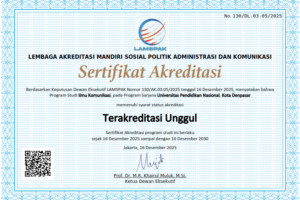BI Increased Interest Rate: How The Impact On The Community Economy
Denpasar – Based on the results of the Board of Governors Meeting (RDG) of Bank Indonesia (BI) on September 21-22 2022. BI decided to increase the BI 7-Day Reverse Repo Rate (BI7DRR) by 50 basis points/bps to 4.25%, the interest rate of The Deposit Facility is 50 bps to 3.50%, and the Lending Facility interest rate is 50 bps to 5.00%. BI views the decision to increase the interest rate as a step forward, pre-emptive, and forward-looking to reduce inflation and ensure core inflation returns to the target of 3.0±1% in the second half of 2023, this step is also aimed at strengthening the Rupiah exchange rate stabilization policy so that in line with its fundamental value due to uncertainty in global financial markets, amidst the domestic economic demand that remains strong. BI report. (1/10/2022).
An increase in BI interest rates will certainly have an impact on the economy and the general public, with rising BI interest rates will have an impact on increasing interest rates for commercial banks followed by increases in banking products such as mortgages, and other types of credit. From the capital market perspective, an increase in interest rates tends to be a negative sentiment that causes a weakening in the capital market.

Prof. Dr. Ir. Nyoman Sri Subawa, S.T., S.Sos., M.M., IPM., ASEAN.Eng as an academician and Rector at the Universitas Pendidikan Nasional views this phenomenon as the government’s right step in controlling the inflation rate in the country.
“An increase in interest rates will certainly cause a change in people’s interest from consumption to savings, an increase in interest rates will attract people to save more funds in banks. This will certainly have an impact on the decline in cash circulation in the market triggered by the existing interest rates,” said Professor Sri Subawa in his interview.

Sri Subawa also said that this is certainly in line with an economic theory where the higher the level of sales circulating in the market is directly proportional to the rate of increase in inflation. Consuming this interest rate also affects saving investment rates and decreases food prices in the market caused by people who prefer to put money in banks with high-interest rates and relatively low risk, compared to using them or choosing other high-risk investment instruments.



